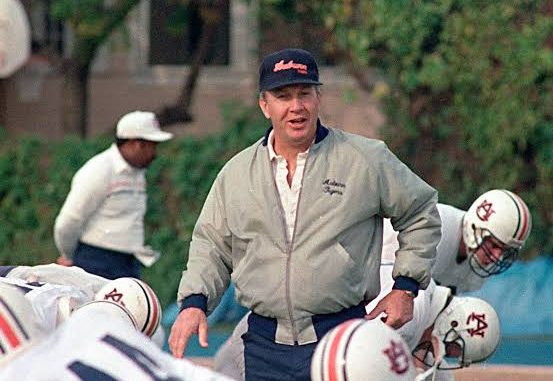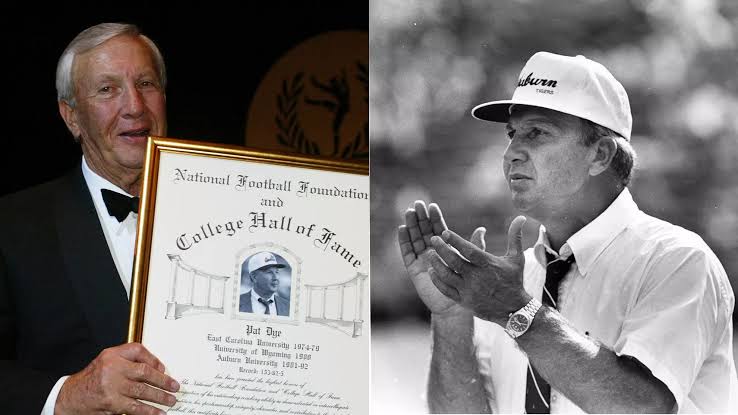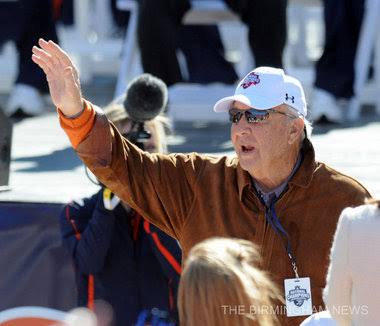
AUBURN, Ala. – Netflix has set date for its gripping documentary, Pat Dye: War Eagle Legacy, which chronicles the remarkable tenure of Auburn Tigers football coach Pat Dye. The film dives into Dye’s transformative 12-year journey at Auburn, where he revitalized the program, won four SEC championships, and cemented his status as a college football icon. Packed with archival footage, exclusive interviews, and behind-the-scenes moments, the documentary promises to honor Dye’s enduring impact on Auburn and the sport.
Pat Dye, who passed away in 2020 at age 80, is synonymous with Auburn football’s golden era. Taking the helm in 1981, he inherited a program struggling with a 5-6 record and turned it into a powerhouse. From 1981 to 1992, Dye compiled a 99-39-4 record, leading Auburn to nine straight bowl games and four SEC titles (1983, 1987, 1988, 1989). His 1983 team, featuring Heisman Trophy winner Bo Jackson, finished 11-1 and was controversially denied a national championship despite defeating Michigan in the Sugar Bowl. Dye’s fierce competitiveness and deep connection to Auburn’s “War Eagle” spirit made him a beloved figure, with Jordan-Hare Stadium’s field named in his honor in 2005.

Directed by Emmy-winning filmmaker Sarah Langston, known for her work on ESPN’s 30 for 30 series, the documentary offers a vivid portrait of Dye’s leadership. It includes rare footage of team meetings, sideline moments, and his famed pregame speeches, showcasing his ability to inspire players like Jackson, quarterback Stan White, and linebacker Quentin Riggins. Interviews with former players, coaches, and Dye’s family reveal the man behind the legend—a tough yet compassionate leader who grew up on a Georgia farm and served in the U.S. Army before coaching.
“Pat Dye didn’t just coach football; he built a culture,” Langston said in a Netflix press release. “This film captures his grit, his heart, and how he made Auburn a family.” The documentary explores Dye’s role in elevating the Iron Bowl rivalry with Alabama, where he went 6-6, including a historic 1982 upset capped by Bo Jackson’s “Bo Over the Top” touchdown. It also addresses challenges, like the 1991 NCAA probation that limited scholarships, yet Dye still guided Auburn to a 10-2 record in 1988 and 1989 under scrutiny.
Dye’s legacy extends beyond wins. He was instrumental in moving the Iron Bowl to Jordan-Hare Stadium in 1989, ending decades of games at neutral sites. His 1986 Coach of the Year award and three SEC Coach of the Year honors reflect his tactical brilliance, often using a punishing run-heavy offense. The film highlights his mentorship, with players like Riggins crediting Dye for life lessons that shaped their careers. Off the field, Dye’s love for Auburn shone through his post-coaching years as a farmer, broadcaster, and trustee, always championing the university.
The documentary doesn’t shy away from controversies, including the 1991 recruiting scandal that led to NCAA sanctions. It frames these as tests of Dye’s resilience, showing how he rallied the team and fans. Archival clips of Dye’s fiery press conferences, where he defended his program with unapologetic candor, are paired with reflections from his son, Pat Dye Jr., who shares personal stories of his father’s humor and loyalty.

Auburn fans have taken to X, buzzing with excitement for the film. “Pat Dye put Auburn back on the map. This doc is gonna be epic!” one post read. Another user wrote, “War Eagle forever because of Coach Dye. Can’t wait for August 15!” The film also touches on Dye’s broader impact, including his mentorship of future coaches like Tommy Tuberville and his advocacy for rural life, seen in his Alabama farm where he hosted team barbecues.
As Auburn prepares for the 2025 season under coach Hugh Freeze, Pat Dye: War Eagle Legacy is set to rekindle pride in the program’s storied past. With a runtime of approximately 100 minutes, the documentary will stream exclusively on Netflix, offering fans a chance to relive Dye’s victories and understand his profound connection to Auburn. Mark August 15, 2025, for a heartfelt tribute to a coach who made “War Eagle” roar.
Be the first to comment